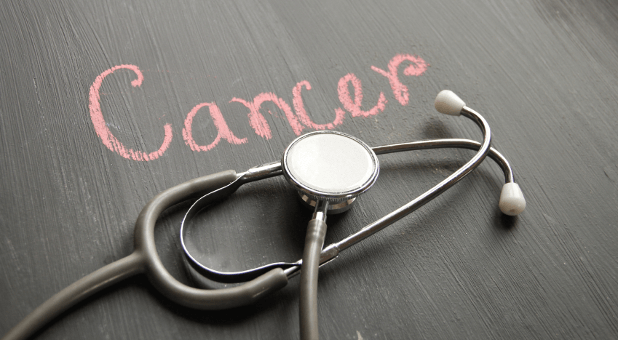The American Cancer Society projects that more than 1,665, 540 new cases of cancer will be diagnosed in 2014. Even though it is the second most common cause of death in the United States, it’s not always fatal.
In fact, more people survive every year, and the key is early diagnosis and treatment. But the warning signs of cancer aren’t always clear, and they can be subtle and easily confused with minor ailments. Beware of the following signs of cancer:
1. Heartburn. Chronic heartburn, as well as mild nausea and feeling bloated, may be early signs of stomach cancer. Since antacids may relieve the heartburn pain, you may be convinced that you’ve nothing more than a bit of excess stomach acid. But if the symptoms continue, and you may even feel full after eating less than normal, see your doctor.
People who suffer from gastroesophageal reflux disease (GERD) are more vulnerable because the condition can cause Barrett’s esophagus, a condition that can be a precursor of throat cancer.
2. Shortness of breath. The first symptom some victims of lung cancer notice is a shortness of breath while doing tasks that they could previously do without effort. A stubborn cough that lingers past a couple of weeks, whether dry or mucus-producing, could be an early sign of lung cancer—or a change in a chronic cough if you are a smoker. If symptoms persist, visit your doctor. He’ll listen to your lungs and may order tests such as an X-ray.
3. Flu-like symptoms. Early symptoms of lymphoma, cancer of the lymph nodes, are similar to flu, and they include aches and fevers. Although fevers are more common in cancers that have spread, according to the American Cancer Society, they tend to be early symptoms of lymphoma and leukemia.
4. Hoarseness. If you remain hoarse for more than two weeks after an upper respiratory infection or allergy season has passed, especially if it continues to get worse, get yourself checked out. Hoarseness or laryngitis could be caused by esophageal (throat cancer), lung cancer, or even thyroid cancer, as a tumor presses on the esophagus, and in many cases, hoarseness may be the only symptom of esophageal cancer.
5. Arm or shoulder pain. A pain on the inside of the arm or shoulder that gets worse over time could be a symptom of lung cancer caused by enlarged lymph nodes pressing on nerves. This warning pain, which can appear even before shortness of breath, isn’t like a sore muscle but is constant and is similar to a pinched nerve or arthritis.
6. Bloating. If you’re a woman and you’re experiencing abdominal bloating that continues with no explanation, such as a regular monthly episode connected with PMS, consult with your doctor, especially if you’re also feeling full, but haven’t eaten much—or at all.
Unexplained bloating, especially when combined with feeling full, is a common symptom of ovarian cancer, a deadly cancer that causes few symptoms until advanced. Your doctor can order an ultrasound of your abdomen to spot possible problems.
7. Difficult urinating. Men who have trouble urinating, either not being able to urinate, having difficulty stopping, or a weak flow, may attribute their condition to a swollen prostate, but difficulties urinating are the most common sign of prostate cancer. Your doctor can perform an exam and perhaps screen you for prostate cancer using the PSA (prostate specific antigen) test.
8. Fatigue. Weakness and fatigue are symptoms of many types of cancer, but are especially characteristic of leukemia, according to the American Cancer Society. If you continue to feel exhausted, even if you’re getting enough sleep and aren’t under undue stress, consult with your doctor.
For the original article, visit newsmaxhealth.com.















































